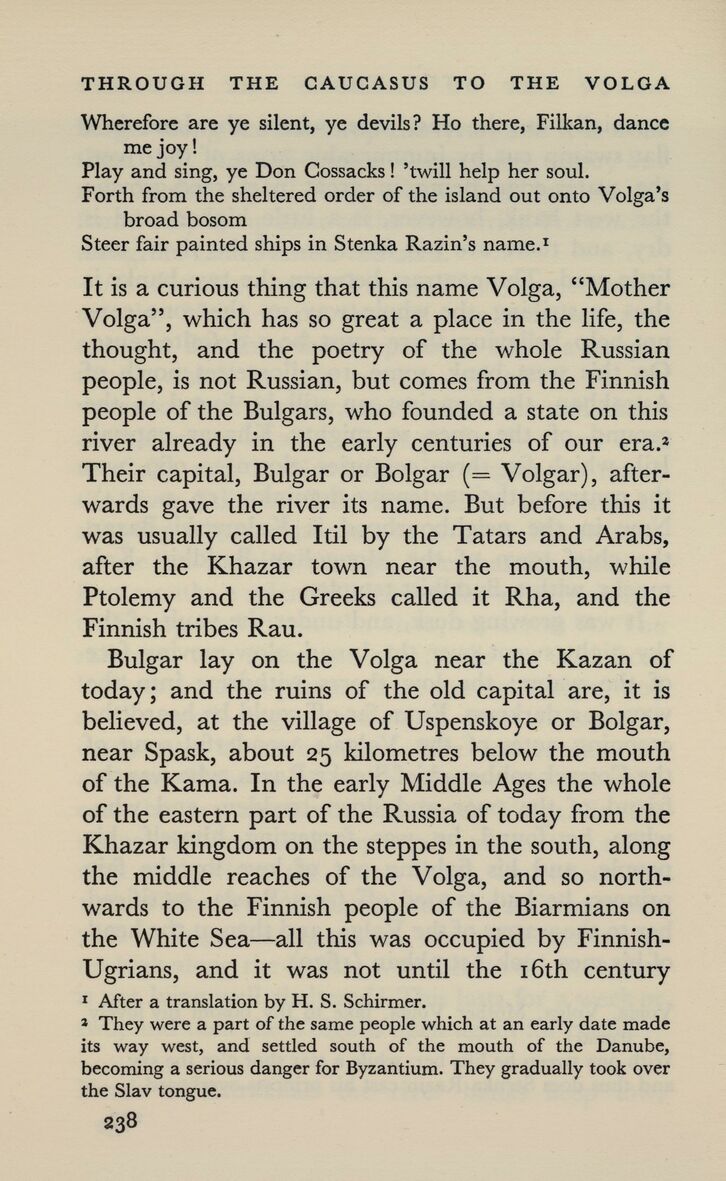
Full resolution (JPEG) - On this page / på denna sida - X. The Volga

<< prev. page << föreg. sida << >> nästa sida >> next page >>
Below is the raw OCR text
from the above scanned image.
Do you see an error? Proofread the page now!
Här nedan syns maskintolkade texten från faksimilbilden ovan.
Ser du något fel? Korrekturläs sidan nu!
This page has never been proofread. / Denna sida har aldrig korrekturlästs.
THROUGH THE CAUCASUS TO THE VOLGA
238
Wherefore are ye silent, ye devils? Ho there, Filkan, dance
me joy !
Play and sing, ye Don Cossacks ! ’twill help her soul.
Forth from the sheltered order of the island out onto Volga’s
broad bosom
Steer fair painted ships in Stenka Razin’s nåme.1
It is a curious thing that this nåme Volga, "Mother
Volga", which has so great a place in the life, the
thought, and the poetry of the whole Russian
people, is not Russian, but comes from the Finnish
people of the Bulgars, who founded a state on this
river already in the early centuries of our era.2
Their capital, Bulgar or Bolgar (= Volgar), after
wards gave the river its nåme. But before this it
was usually called Itil by the Tatars and Arabs,
after the Khazar town near the mouth, while
Ptolemy and the Greeks called it Rha, and the
Finnish tribes Rav.
Bulgar lay on the Volga near the Kazan of
today; and the ruins of the old capital are, it is
believed, at the village of Uspenskoye or Bolgar,
near Spask, about 25 kilometres below the mouth
of the Kama. In the early Middle Ages the whole
of the eastern part of the Russia of today from the
Khazar kingdom on the steppes in the south, along
the middle reaches of the Volga, and so north
wards to the Finnish people of the Biarmians on
the White Sea—all this was occupied by Finnish-
Ugrians, and it was not until the i6th century
1 After a translation by H. S. Schirmer.
1 They were a part of the same people which at an early date made
its way west, and settled south of the mouth of the Danube,
becoming a serious danger for Byzantium. They gradually took over
the Slav tongue.
<< prev. page << föreg. sida << >> nästa sida >> next page >>